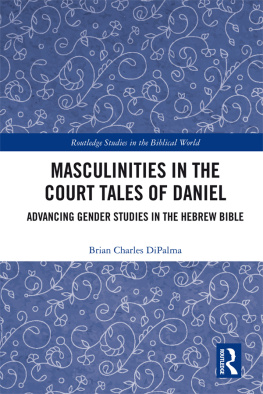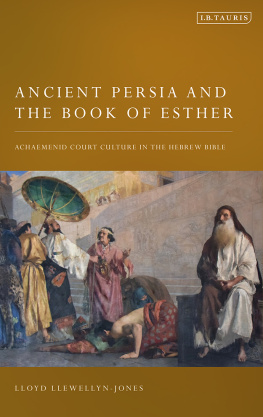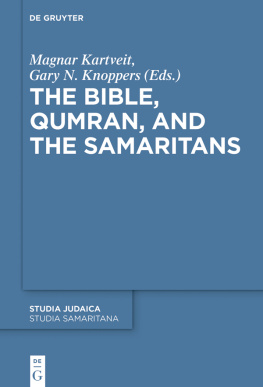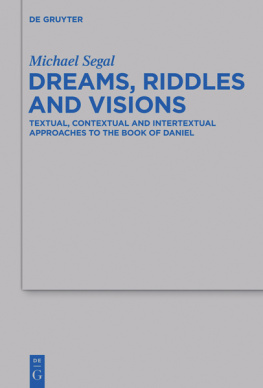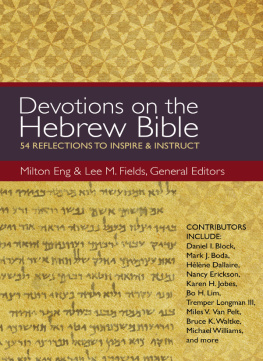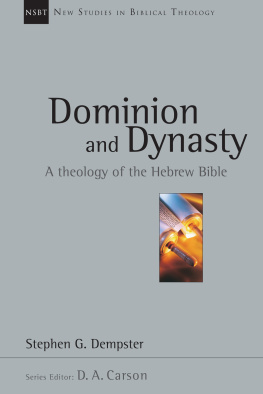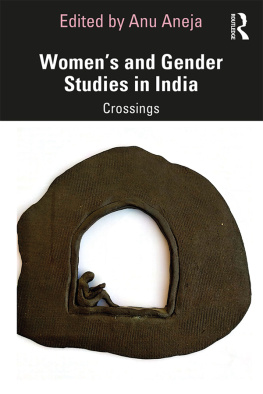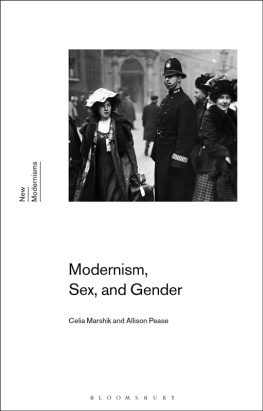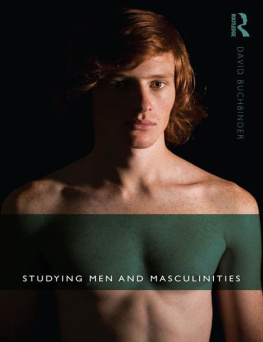Masculinities in the Court Tales of Daniel
This volume is among the first to explore masculinity, or more precisely masculinities, in the Hebrew Bible. The analysis is methodologically sophisticated and clearly presented, and the author does not shy away from showing the contemporary implications of his findings. This book will be of interest to students and scholars of the Hebrew Bible/Old Testament, Gender Studies, and Masculinity Studies.
Marc Brettler, Duke University, USA
In this volume, Brian Charles DiPalma examines masculinities in the court tales of Daniel as a test case for issues facing the burgeoning area of gender studies in the Hebrew Bible. In doing so, it both analyzes how the court tales of Daniel portray the characters in terms of configurations of masculinity in their socio-historical context and also seeks to advance gender studies in the Hebrew Bible on theoretical, methodological, and political grounds.
Masculinities in the Court Tales of Daniel is therefore of interest not only to scholars working on Daniel, but also biblical scholars studying gender in the Hebrew Bible more broadly, including those engaged in feminist criticism, queer criticism, and studies of masculinity, as well as anyone studying gender within an ancient Near Eastern context.
Brian Charles DiPalma is an independent scholar, currently teaching in Fresno, California, USA.
Routledge Studies in the Biblical World
Available titles
A COMMENTARY ON NUMBERS
Narrative, Ritual, and Colonialism
Pekka Pitknen
MASCULINITIES IN THE COURT TALES OF DANIEL
Advancing Gender Studies in the Hebrew Bible
Brian Charles DiPalma
Forthcoming titles
RELIGION, ETHNICITY, AND XENOPHOBIA IN THE BIBLE
Foolish Nations
Brian Rainey
For more information about this series, please visit: www.routledge.com/classicalstudies/series/BIBWORLD
Masculinities in the Court Tales of Daniel
Advancing Gender Studies in the Hebrew Bible
Brian Charles DiPalma

First published 2018
by Routledge
2 Park Square, Milton Park, Abingdon, Oxon OX14 4RN
and by Routledge
711 Third Avenue, New York, NY 10017
Routledge is an imprint of the Taylor & Francis Group, an informa business
2018 Brian Charles DiPalma
The right of Brian Charles DiPalma to be identified as author of this work has been asserted by him in accordance with sections 77 and 78 of the Copyright, Designs and Patents Act 1988.
All rights reserved. No part of this book may be reprinted or reproduced or utilised in any form or by any electronic, mechanical, or other means, now known or hereafter invented, including photocopying and recording, or in any information storage or retrieval system, without permission in writing from the publishers.
Trademark notice: Product or corporate names may be trademarks or registered trademarks, and are used only for identification and explanation without intent to infringe.
British Library Cataloguing-in-Publication Data
A catalogue record for this book is available from the British Library
Library of Congress Cataloging-in-Publication Data
A catalog record for this book has been requested
ISBN: 978-1-138-72473-0 (hbk)
ISBN: 978-1-315-19226-0 (ebk)
Typeset in Times New Roman
by Apex CoVantage, LLC
Contents
I read acknowledgments with as much interest as the books themselves because I enjoy learning about a scholars community of colleagues and friends, which helps humanize the name on the cover. Additionally, reading about the communities that support the work of others makes me think of my own community, which always brings me joy. It is with great pleasure that I can now acknowledge the caring and dedicated support of the people who have made this book possible, especially the editorial team at Routledge, including Amy Davis-Poynter and Elizabeth Risch.
This book is a revised version of my doctoral dissertation, which was written at Emory University. The Laney Graduate School provided generous funding throughout, making it possible to complete the dissertation in a timely fashion. I am especially grateful to the Hebrew Bible faculty, including William (Bill) K. Gilders, Joel M. LeMon, Carol A. Newsom, Brent A. Strawn, and Jacob Wright. Bill proved untiringly helpful throughout my entire time at Emory, from coursework to guiding this project to completion through all its various stages. His insightful comments and engaging conversations always pushed me to develop this project to be the best it could. I can only hope that this completed form elicits no tearful denunciations from him and that his cat will be able to see more of him. Carol and Joel also provided critical feedback on multiple versions. Along with her first round of feedback, Carol provided a copy of her commentary on Daniel that became a trusted guide for exegetical difficulties in the court tales. Joel even provided additional feedback on my work as we subdued chaos in the Chattahoochee. At points when I thought I had written all I could as clearly as possible, their comments energized me to sharpen and clarify my arguments. I am grateful for the many ways each of them has supported and critiqued my work.
While my home at Emory was in the Graduate Division of Religion, faculty members in the Womens, Gender, and Sexuality department, including Lynne Huffer and Irene Brown, welcomed me into their classes. I am also grateful for occasions to teach at Candler School of Theology, including a special topics course on Feminist and Queer Approaches to Biblical Interpretation. Conversations with students in that course caused me to rethink several points in this project. I am also grateful for the Andrew Mellon Graduate Teaching Fellowship program at Emory, which entailed the honor of teaching at Morehouse College. The students at Morehouse who took a special topics course on Gender, Sexuality, and the Hebrew Bible with me helped me refine and clarify some of these ideas.
While this book is the culmination of my work at Emory, several other people significantly influenced me and my development prior to beginning at Emory. In particular, I am grateful to several of my undergraduate professors at Fresno Pacific University, including Richard Rawls, Pam and Marshall Johnston, Greg Camp, and Laura Schmidt Roberts, the latter of whom provided my first introduction to feminist scholarship. At Princeton Theological Seminary, Jacqueline Lapsley and Dennis T. Olson were especially influential in providing occasions to study feminist work on the Bible and to allow me space to begin exploring masculinity in biblical literature. Though I never studied with him, I am grateful to David J. A. Clines, who allowed me to incorporate some of his unpublished work into a paper I was researching on masculinity in Exodus 14. He also connected me with Ovidiu Creang, who was editing a volume on masculinity in the Hebrew Bible. Ovidius insightful feedback on that piece significantly shaped it and me as I began my doctoral work at Emory.
The friendship of Ryan Bonfiglio, K. Parker Diggory, Josey Bridges Snyder, Johannes Kleiner, and Adam Strater sustained me through the rigors of doctoral studies. Seeing a look of terror in my eyes after my first seminar in course work, they invited me to coffee in what became a weekly gathering ritual.

